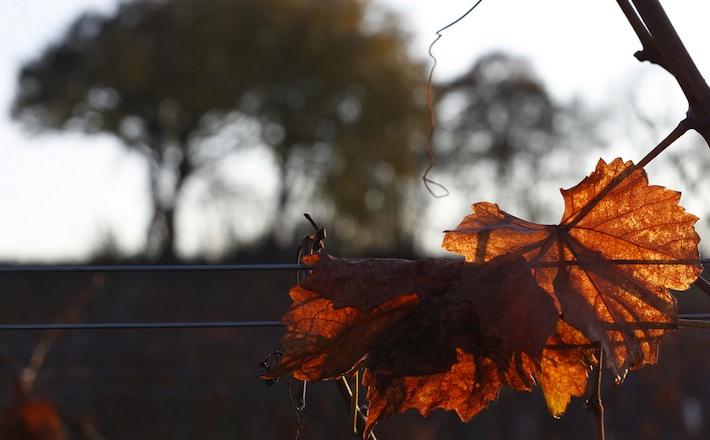Commentary on Isaiah 5:1-7
The speaker is Isaiah (“my”; 5:1, 9); the prophet speaks in the first person for the first time.
The “beloved,” the owner of the vineyard, is God and the “vineyard” is Israel (5:7). After speaking 5:1-2, Isaiah quotes God in 5:3-6 and then returns to speak the balance of the chapter. For Isaiah to refer to God as “my beloved” is to identify himself as a representative of God’s beloved people Israel.
The image of a vineyard for Israel is used elsewhere (see 3:14; 27:2-6; Psalm 80:8-19); it is sometimes associated with the image of a bride with her beloved. This association is evident in the immediately prior book, where the loved one is likened to a vineyard (Song of Solomon 7:6-9; 8:11-12).
For Isaiah to use a vineyard image for the God, Israel relationship stands in that tradition; only now it is deeply ironic given the breakdown in Israel’s relationship with God. The love-song imagery sets up the audience to hear words of love, but words of judgment soon fill the room. It has been suggested that such a turn would be like singing “Holy, Holy, Holy” to the tune of “Let me call you sweetheart”!
Given this imagery, Isaiah 5:1-7 is best designated an allegory (cf. 2 Samuel 12:1-6). But only in 5:7 are identities made clear and only then would the people see that the song is actually a harsh judgment on them. This strategic use of the love-song is to get them to recognize what they have done and to respond to God’s questions in 5:3-4 in a way that would be fair and just.
The beginning of the text is very positive. The vines are a high quality product. Israel is chosen by the beloved, with a high value as human beings. The land is fertile, with great possibilities for the development of the vines. The relationship between owner and vineyard is in good order. Indeed, the owner is very fond of his vineyard, works hard on its behalf, and has only the best intentions for its future.
The owner is God, the “beloved,” a word that carries high levels of intimacy. Love is basic to the identity of God and that remains intact through all the anger and judgment that follows. Wrathful judgment is a contingent divine response to developments within the relationship, not a perpetual divine frown.
The owner cares for the vines and contributes the best divine effort to their growth and development. This is backbreaking work. It includes planting, clearing, and making the best possible preparations for the expected harvest. One is invited to think through God’s activity on Israel’s behalf.
As with all farmers, God waits expectantly (and patiently!) for their development (two years at a minimum for a new vineyard). The building of a watchtower, hedge, and wall shows that the owner takes special precautions for the safety of the vineyard.
The owner has high expectations for the vines, that a great harvest will be forthcoming, that the grapes will yield wine to fill the prepared vat. This divine expectation carries the sense of eager anticipation and is emphasized by repetition (5:2, 4, 7).
The idea carries the sense that such a positive future for the people is not certain, even for God. Only with such an understanding of God can one speak of divine disappointment and frustration at the way things turn out (see 1:1-2).
What comes of this divine plan for the vineyard?
1. For all of the divine expectations, it is repeatedly stated (verses 2, 4) that the vines yield wild grapes or spoiled fruit, unfit for making good wine. In spite of the best divine efforts, things go wrong!
2. In view of these developments, God directly engages the vineyard regarding what has happened (verse 3). Apparently, God hopes that the people will discern what they have done and “judge,” that is, pronounce a verdict against themselves.
3. To this end, God asks two questions of the people (verse 4). These are not rhetorical questions or question-shaped accusations, but genuine questions, for both God and people. What more might God have done (see Hosea 6:4)? Why did this happen (see Jeremiah 2:29-32; 8:4-7), especially in view of massive divine effort? Such questions, with no readily available answer, even for God, constitute a divine lament that accompanies the following judgment.
4. God responds (verses 5-6) in language that anyone familiar with viticulture would recognize. The vine is useless if it does not produce and will be destroyed — typical for unproductive vineyards (see Ezekiel 15:1-8). The protective shields for the vineyard would be removed and all the forces that make for death and destruction (including marauders and weeds, referencing foreign armies in view of the larger context) would overrun the place, making it a waste (see Jeremiah 4:23-26).
But what do we make of God as the subject of these verbs of destruction? One, God works in and through historical agents who will “devour” and “trample down” (see Isaiah 7:23-25). These judgments are woven repeatedly into the verses that follow (see 5:9-10, 13-17, 24-30). Two, God mediates the natural effects of Israel’s wickedness.
The consequences are intrinsic to the deed, not newly introduced by God. At the same time, God remains the beloved of Israel. This destruction is not final, but a refining fire through which Israel must pass to enable a positive future.
5. Verse seven details the elements of the allegory: You (both Israel and Judah) are the vineyard! The issue for God becomes clear: an absence of justice (mishpat) toward the disadvantaged members of Israel’s society and a vacuum of righteousness (sedeqah) that neglects the word and deed of God in their treatment of others.
Israel’s injustice is particularized. The “bloodshed” refers to abusive practices that bleed the poor to death. The “cry” refers to their anguished response. These actions are “wild grapes” (detailed in 5:8, 11-12, 18-24). Notably, these texts link abuse of the neighbor to the neglect of God’s word and deed (see 5:12, 24).
6. This text may be profitably linked to New Testament texts that use agricultural images. An example: Jesus’ discourse regarding the vine and its branches, with expectations to bear fruit, and removing and burning those who do not (John 15:1-17). See also the parable of the wicked tenants (Matthew 21:33-44).


October 5, 2014